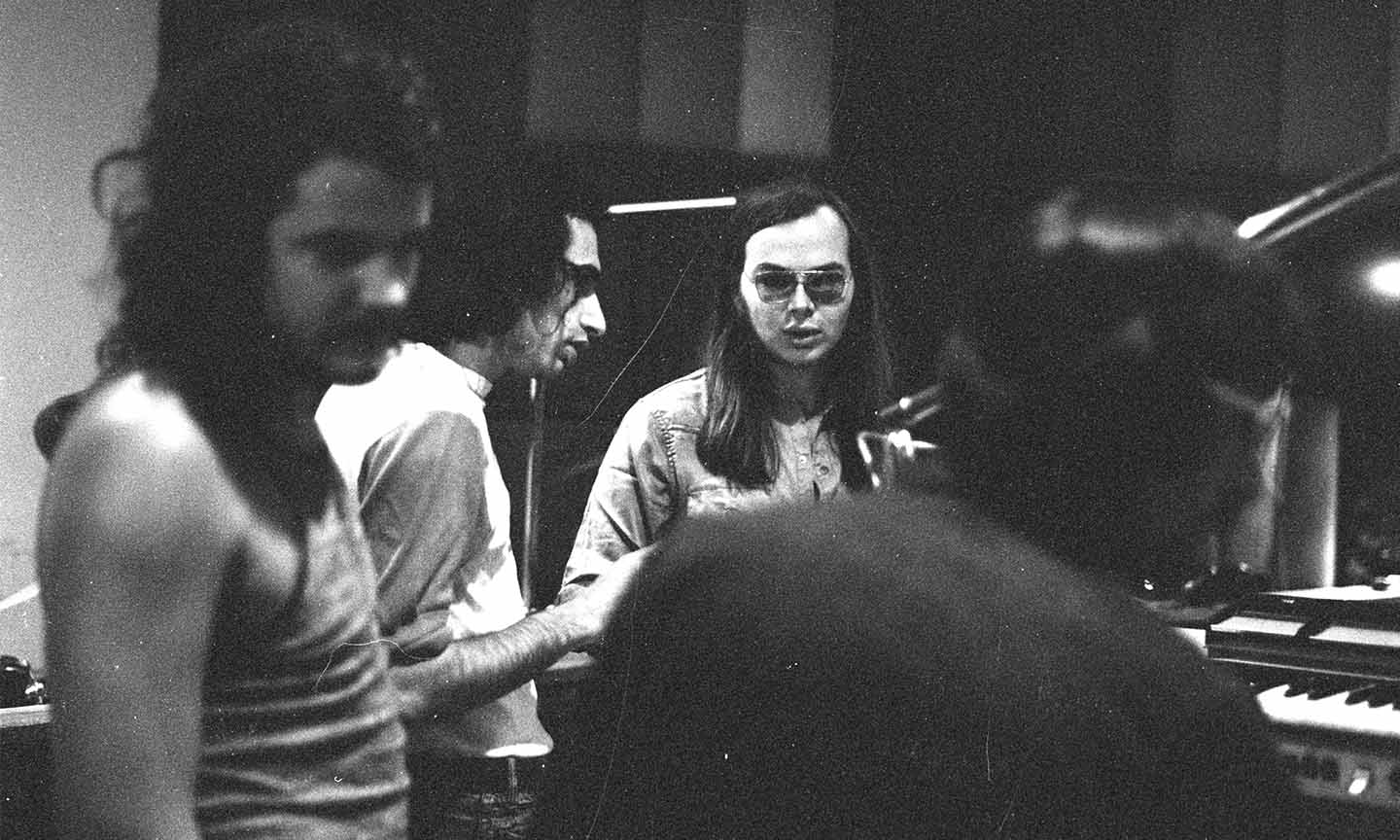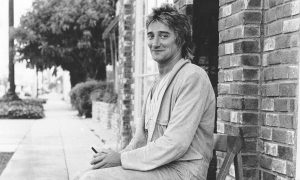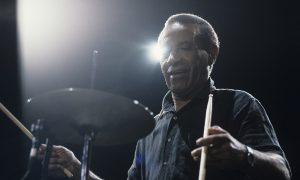When it comes to nailing down an album’s production, Steely Dan records have always been the gold (or, more accurately, platinum) standard. Donald Fagen and Walter Becker were Steely Dan’s creative core, but plenty of their classic cuts tap the talents of stellar session players to kick things up to another level. As their music became more complex, Fagen and Becker turned to a murderer’s row of session giants who helped make their songs sparkle, and every studio gunslinger was eager to add a Steely Dan track to their resume. From outer-space guitar solos to devilishly funky drum grooves, let’s look back at some of the most jaw-dropping moments provided by all-star sidemen throughout the Dan discography.
Listen to The Very Best of Steely Dan now.
Elliott Randall: Reelin’ in the Years (Can’t Buy a Thrill, 1972)
The cascading guitar riff in the midsection of this tune from Steely Dan’s debut album was arresting enough to seemingly inspire Thin Lizzy’s classic “The Boys are Back in Town” four years later. But the solo that follows it, courtesy of six-string sorcerer Elliott Randall, lifts the track into the stratosphere. Randall had played on some of the earliest Dan demos in the 60s, so he was in tune with where they were coming from. Recorded in a single take, his solo sings with a deliciously dirty tone and flits between finger-busting licks and the kind of conversational phrasing that defines George Harrison’s best Beatles moments. Of course, Randall’s lead-in at the top of the tune is a spectacular spoiler alerting us that the fur will be flying here.
Jerome Richardson: Dirty Work (Can’t Buy a Thrill, 1972)
Jazz was a touchstone for Fagen and Becker from the beginning; they were both captivated by bebop before they met. Even though “Dirty Work” is among Steely Dan’s earthiest, most soul-oriented songs, they still found a way to slip prolific bop saxophone heavyweight Jerome Richardson into the works, for his first rock album session. Richardson played with a mind-boggling array of jazz giants, Sarah Vaughan, Cannonball Adderley, and Charles Mingus, being only a few. But when his tenor takes over after the song’s second chorus, he’s not dispensing frenzied bop licks. Instead, he lays down a series of bluesy, almost bawdy slurs before shifting to the staccato ascending phrases that slam-dunk the tune into its coda.
Phil Woods: Doctor Wu (Katy Lied, 1975)
By the time Steely Dan got to their fourth album, Katy Lied, their use of jazz shadings had jumped several rungs up the evolutionary ladder. And when they wanted a searching-but-searing solo to underline the desperation at the heart of the world-weary ballad “Doctor Wu,” they reached out to bop legend Phil Woods, another jazz giant who’d never done a rock session. Woods was famous as a bandleader but had also played with Dan heroes like Bill Evans and Dizzy Gillespie. With long, lyrical lines, Woods’ bittersweet alto solo seems to evoke the satisfaction slipping out of the narrator’s reach, tantalizingly close but still distant enough to seem dreamlike.
Larry Carlton: Kid Charlemagne (The Royal Scam, 1976)
Before Larry Carlton burned his initials into “Kid Charlemagne” he already had a solo career and a hefty session rep, having recorded with everybody from Barbra Streisand to Joni Mitchell. His guitar fireworks on the churning, funky tune from 1976’s The Royal Scam provide one of the most celebrated instrumental moments in the Dan discography, which is no small feat. When Carlton opens up in the middle of the track, his mix of graceful leaps and burning licks adds an extra chapter to the song’s outlaw tale, and he jumps in again at the end to ride the whole thing out with an extra jolt of jazz-rocking electricity.
Bernard Purdie: Home at Last (Aja, 1977)
Drumming deity Bernard Purdie put the good foot down on a number of James Brown tunes in the 60s and was the man behind some of Aretha Franklin’s best grooves as her musical director before the time came to help Steely Dan make their 1977 tour de force, Aja. Fagen and Becker were struggling to find the right groove to keep “Home at Last” moving without yoking it to anything too predictable. Enter the man known as “Pretty” Purdie, with a variation on his signature “Purdie shuffle” that made it all come together. Looking back years later, Becker said, “He always had some unique stylistic thing that he did that you would never imagine in advance and that nobody else would do. This tune was a good example of that.”
Jay Graydon: Peg (Aja, 1977)
With a floor-length CV including Aretha Franklin, Marvin Gaye, Joe Cocker, Dolly Parton, and countless others, Jay Graydon is such a storied session player he was even converted to comic strip form to play with fictional 70s rocker Jimmy Thudpucker in Garry Trudeau’s Doonesbury. So when several guitarists’ attempts at finding the right solo for “Peg” don’t pan out, who are you gonna call? After Larry Carlton, Robben Ford, and Becker himself had all taken a swing at it, Steely Dan must have been about ready to pack it in until Graydon strode up to the plate and knocked it out of the park with a solo that, taken out of context, sounds like it hails from another planet, but tucks perfectly into the track’s mix of complex jazz harmony and commanding pop hooks. It’s no wonder that the tune became one of the Dan’s biggest hits.




